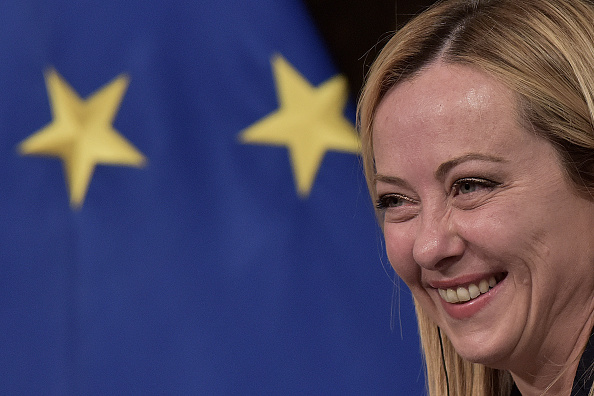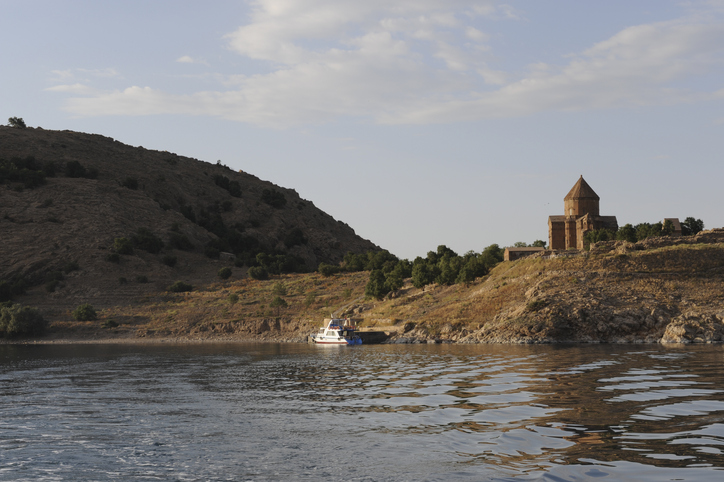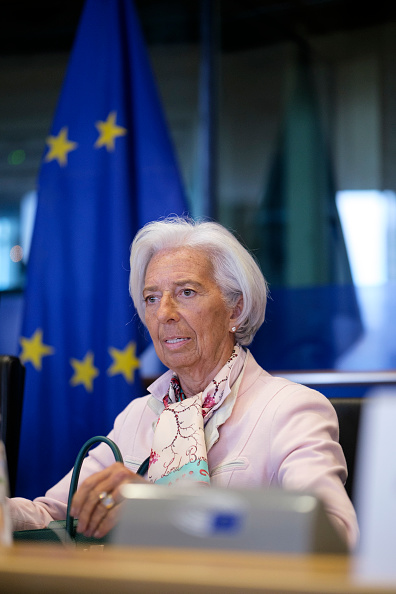With European Union representatives meeting to discuss a possible naval mission to the Red Sea, members are divided on whether or not to support ongoing US and UK missile attacks against Houthi rebels targeting commercial shipping in the vital commercial route.
As many fear the Middle East is inching closer to a broader regional conflict, the Red Sea presents a further challenge to an EU that has already seemed to struggle to find a common position on Israel’s ongoing war with Hamas terrorists.
Justin Parr, a credit-risk professional who follows maritime shipping, told Brussels Signal that backers of Western operations against the Houthi rebels in Yemen “just want to avoid other groups being emboldened by the lack of response” to the Hamas attacks that began in October last year.
The Houthis, backed by Iran, have cast their attacks on Red Sea shipping as a response to the Israeli war in Gaza. Around 12 per cent of global trade and 30 per cent of worldwide container shipping passes through the Red Sea, according to the UK Guardian newspaper and others.
EU planners apparently want to send at least three warships to the Red Sea from January 22 to protect commercial shipping.
The idea has strong support from Anna Baerbock, Germany’s foreign minister and leader of the Greens party. Germany is likely to send its F-124 Hessen frigate, regarded by military experts as its most state-of-the-art vessel.
France’s Rear Admiral Emmanuel Slaars said his warships would accompany French commercial vessels through the Red Sea but would remain under French control and not form part of a US coalition.
The Netherlands, Denmark and Germany have all publicly supported the US and UK airstrikes that began on January 12 against Houthi installations inside Yemen.
Spain, Italy and France have refused to sign a statement of support for the US and UK missile attacks.
Spanish Prime Minister Pedro Sánchez ordered his EU Ambassador Marcos Alonso to veto a vote of support for the US/UK action, while defence minister Margarita Robles added Spain would not participate in any EU mission in the Red Sea, either.
With about half of commercial shipping on the Shanghai-Europe route now being rerouted around Africa’s Southernmost Cape of Good Hope, according to global markets researcher ING, shipping companies appear to have taken on board the 8 per cent-plus surge in cost-prices per 20-foot container.
“The carriers gain the longer it goes on, so I think [they] will continue to use the excuse of a dangerous passage to avoid Suez and inflate their margins through higher rates,” said Parr.
Egypt, though, “will be losing massive amounts from the lack of Suez transit fees and may be the ones to bring effective pressure,” he added.
Babak Emamian, who follows the Gulf as an analyst and chair of the British Iranian Business Association, said that while the US and UK focus on Iran as the source of the Houthi Red Sea aggression, the EU prefers to consider the attacks on shipping “as activities by criminals rather than a Sovereign State attack”.
European officials, he added, believe the solution is “a militarised police force” and that “more countries would join the ‘Red Sea defence coalition’ as the cost is much lower than a totally military operation”.
There may be something to be said in favour of a “cheaper approach”, argued Emamian.
Arguably, “defending against a $10,000 missile with a $2 million missile is a waste of resources, as are the eight-hour fighter-jet flights to knock out basic military installations,” he said.
While the EU may become involved, it seems probable NATO will not – at least directly – given Turkish President Recep Erdoğan has condemned the US and UK airstrikes as turning the Red Sea into a “sea of blood”.
The possibility of further regional escalation grew January 1, when Iran sent its own frigate Alborz to the Red Sea, a 55-year-old warship originally granted to the then-Shah of Iran by the UK.





